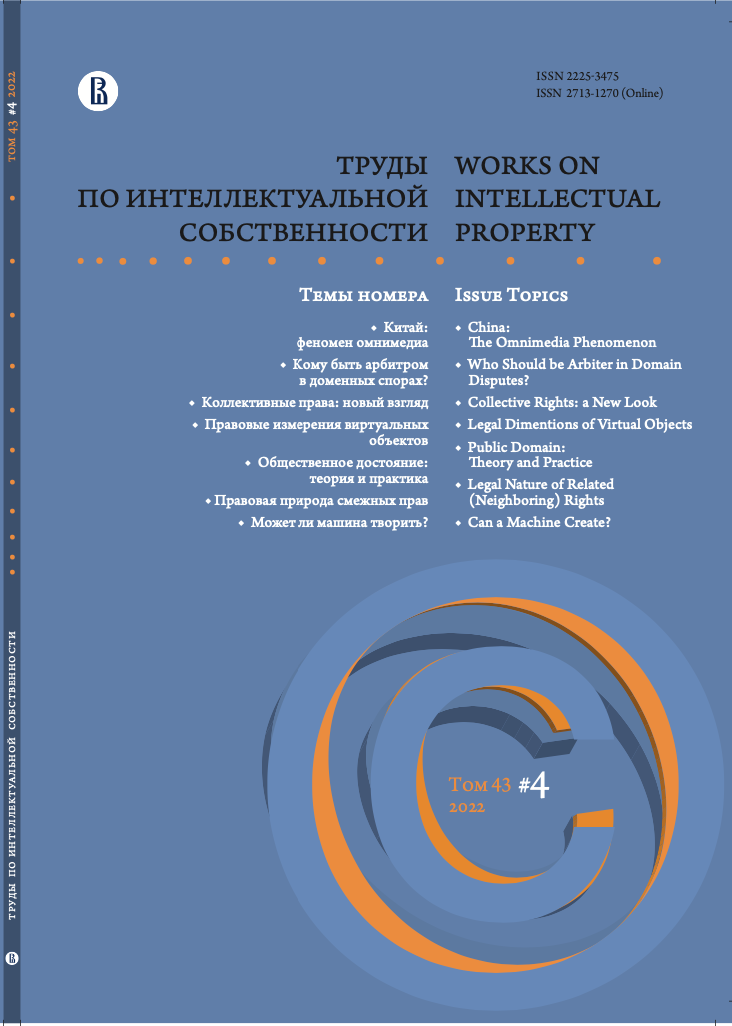LEGAL REGIME OF VIRTUAL OBJECTS IN THE INFORMATION ENVIRONMENT
Abstract
The article analyzes the existing practice of legal regulation of relations between the users and right holders of virtual worlds. It is proved that in modern conditions it is necessary to revise existing approaches to the regulation of relations within the framework of virtual platforms, in particular, to abandon the widespread application of the concept of “gaming nature” of relations between the parties, the main consequence of which is the denial of judicial protection. A prerequisite for this conclusion is the formation of metaverse, which is directly related to the rapid growth of the virtual sector of the digital economy, the intensive development of virtual technologies, the increasing number of users of virtual platforms and the range of virtual goods offered to them.
The article examines the socio-philosophical concept of “virtualization”, demonstrates its application in legal science; identifies areas that will be exposed (or have already been exposed) to the phenomenon of virtualization, and which directly affect the public interests of the state.
The evaluation of the existing in the contractual practice of licensing model of fixation of legal relations between users and right holders of virtual platforms is given, its disadvantages and artificial character are revealed.
The methodological assumptions on which legal regulation of the field should be based are suggested, in particular on the correlation of national legislation, international legal principles and norms, contractual constructs and self-regulation. It is concluded that information law as a legal science, which comprehensively deals with arising problems in the information sphere, is ready to become a platform for the development of virtual law theory to fill the existing gap.
At the same time, neither the civil law science nor the theory of law are separately engaged in the study of relevant problems.


